Unser Ehrenbeirat

I supportAssistance Dog Foundation,
because I am convinced that people can live a more mobile, safer and healthier life with their assistance dog.
Prof. Dr. Schmidtke
Federal Government Commissioner for Patients, MBA, Member of the Bundestag
Assistance dogs are important everyday helpers for a wide range of long-term impairments, including diseases such as diabetes or various seizure disorders. In addition to their assistance, they are of course also lovable partners and give us joy and quality of life.
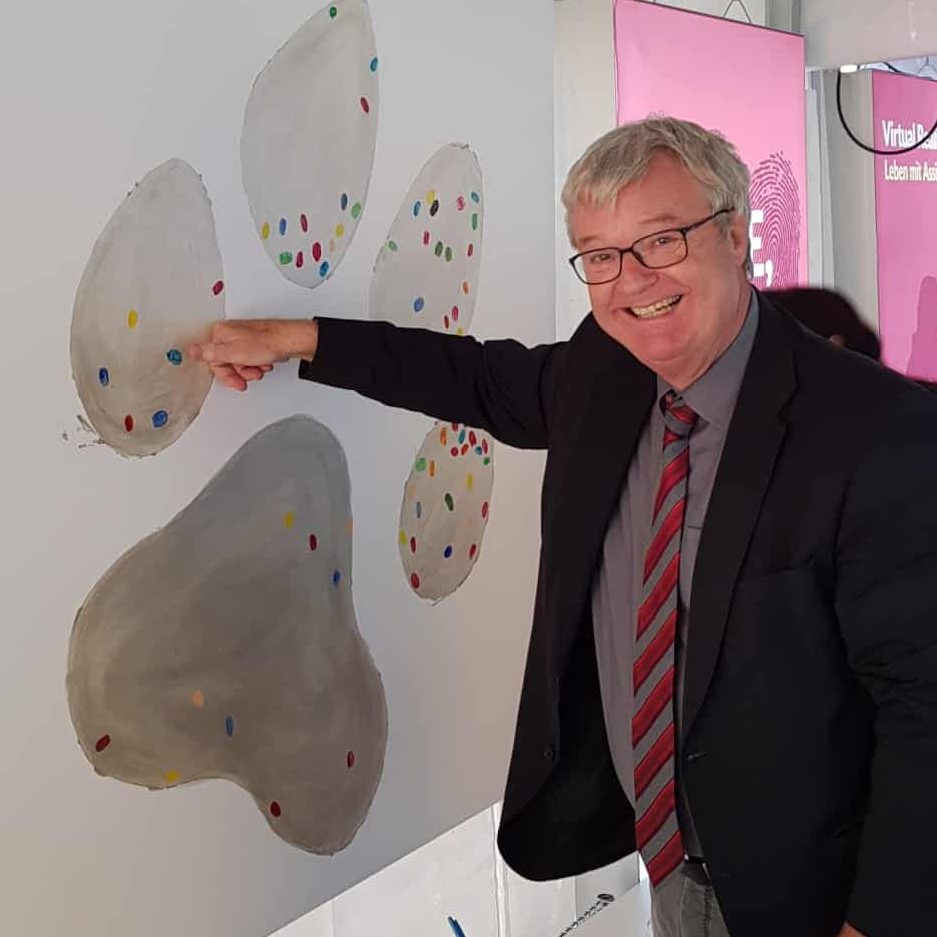
I supportAssistance Dog Foundation
in creating long-overdue foundations for the concept to move forward.
Peter Clever
Vice President of the Employers' Group in the European Economic and Social Committee. Former CEO, Federal Union of Employers' Associations (BDA)
Denied access for assistance dog teams is almost always due to lack of knowledge and insecurity. A clear ID for recognized assistance dog teams, as will be offered by Assistance Dog Foundation, will prevent these misunderstandings.
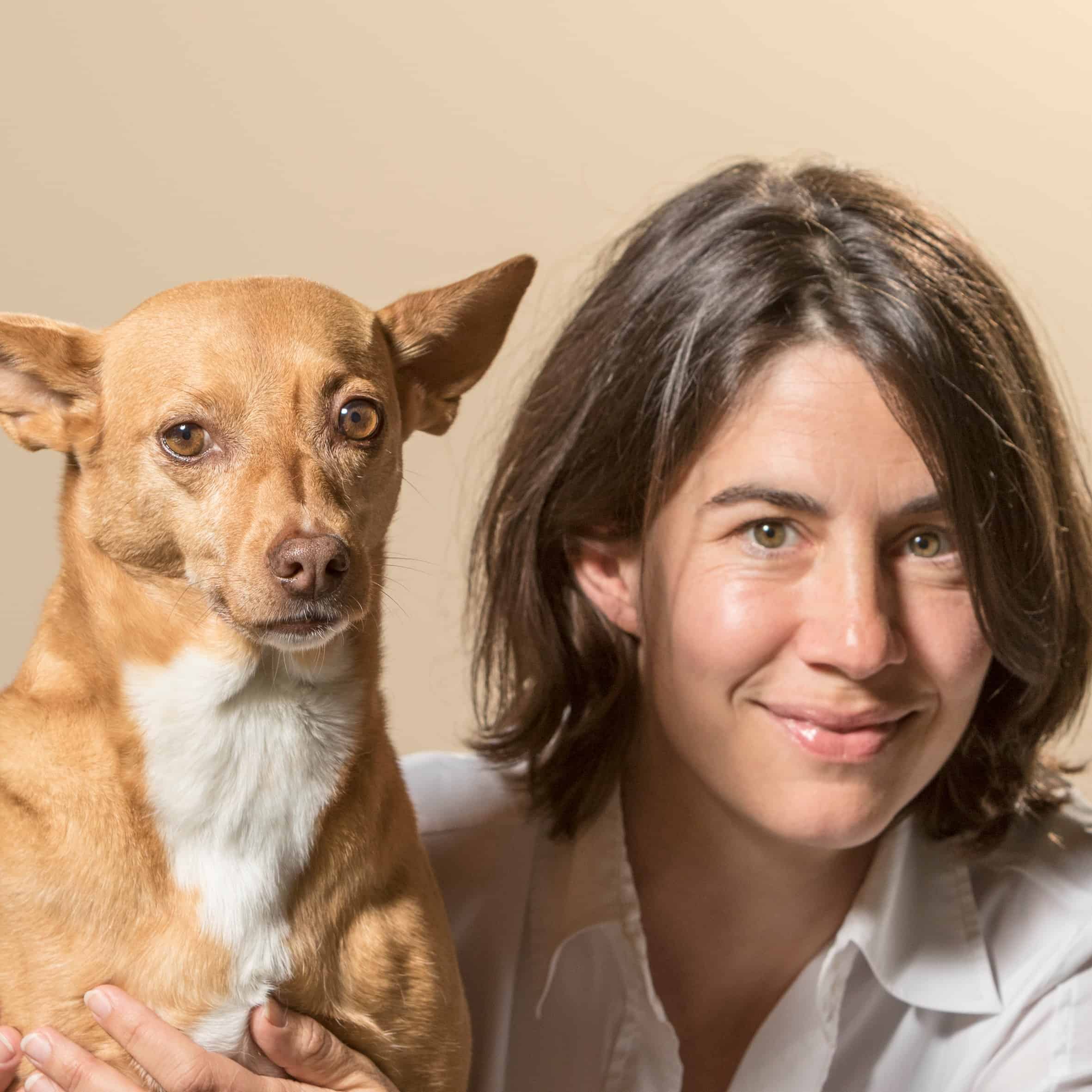
I supportAssistance Dog Foundation,
because it always keeps the dog's well-being in mind in all of its processes.
Dr. Mackensen
German Animal Welfare Federation, Animal Welfare Academy
Assistance dog teams embody - for all to see - the potential of dog-human partnership. Dogs love to be useful - at the same time their rights and needs must always be front and center, because they cannot speak for themselves.
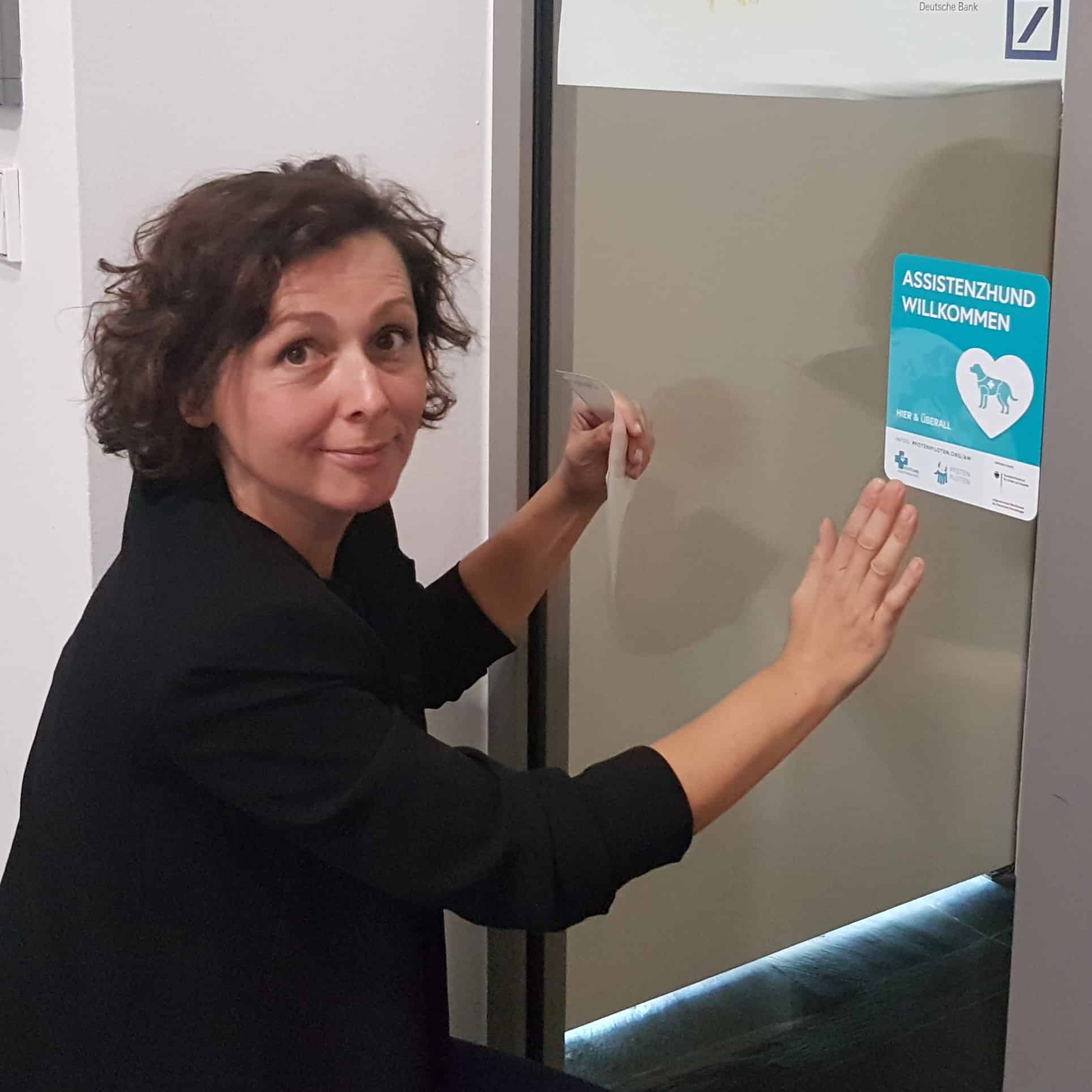
I supportAssistance Dog Foundation,
because it envisions and creates a beneficial, sustainable and innovative future for assistance dog teams.
Gabriela Spangenberg
Managing Director Social Impact gGmbH, Berlin
Developed through an "Andersgründer" scholarship at the Social Impact Lab, Frankfurt, we proudly follow the constant growth of this program. It is truly breaking new ground and step by step establishing effective solutions for assistance dog teams. The goal of our work is to promote the development of social innovations like these.
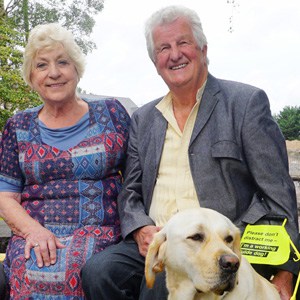
I supportAssistance Dog Foundation
and its vision to create recognition and support for all assistance dog teams.
David Adams
President of the European Guide Dog Federation (EGDF), NGO for the guide dog sector in Europe
I am collaborating with Pfotenpiloten on establishing a European curriculum and certification for assistance dog professionals, L.E.A.D., and we are both on working groups for European assistance dog standard, CEN/TC 452. I am delighted to help her establish Assistance Dog Foundation.

Ich unterstützeStiftung Assistenzhund,
weil sie Chancen eröffnet, das Assistenzhundkonzept als Teil einer personenbezogenen Assistenz umfassend zu evaluieren.
Prof. Dr. Jürgen Zerth
Wirtschaftswissenschaften/Gesundheitsökonomie, Wilhelm-Löhe-Hochschule (WLH), Fürth. VP für Forschung und Leiter des Forschungsinstituts IDC
Wir begleiten Innovationsprozesse im Bereich Gesundheit und Pflege mit interdisziplinärer Forschung. Besonderes Augenmerk liegt auf akteursbezogene Akzeptanz und Alltagstauglichkeit, gesellschaftliche Akzeptabilität sowie Finanzierbarkeit und Wertschöpfung. Das Thema Assistenzhund ist hierbei für uns von hohem Interesse.

I supportAssistance Dog Foundation,
because it has the interests of all stake holders in mind, especially the dogs.
Christoph Jung
Certified psychologist, author of dog-specific literature
Between no species is the relationship so close as between man and dog. Especially assistance dogs make their humans more mobile, strengthen participation and quality of life. For this they deserve special protection and appreciation.

Ich unterstützeStiftung Assistenzhund,
weil sie die Interessen aller Beteiligten, insbesondere auch der Hunde, im Auge hat.
Christoph Jung
Diplom-Psychologe, Autor von Hundefachliteratur
Zwischen keinen Spezies ist die Beziehung so „tierisch gut“ wie zwischen Mensch und Hund. Gerade Assistenzhunde machen ihre Menschen mobiler, stärken Teilhabe und Lebensqualität. Dafür verdienen sie besonderen Schutz und Wertschätzung.

I supportAssistance Dog Foundation,
because it has an independent viewpoint, ensures quality and thus breaks down barriers.
Dr. Schwarzkopf
Schwarzkopf Institute for Hygiene, medical Microbiologist and Epidemiologist, Court Advisor for Hospital Hygiene.
For about 30 years I have been researching hygiene issues in animal-supported concepts. Many access problems for assistance dog teams arise from unclear information, one-sided and dogmatic views and lack of expertise.

Ich unterstützeStiftung Assistenzhund,
weil sie einen unabhängigen Blickwinkel hat, Qualität sichert und so Barrieren abbaut.
PD Dr. Schwarzkopf
Institut Schwarzkopf GbR, Facharzt für Mikrobiologie und Infektionsepidemiologie, öffentlich beeidigter Sachverständiger für Krankenhaushygiene
Seit ca. 30 Jahren erforsche ich Hygienefragen in tiergestützten Anwendungen, auch im medizinischen und pflegerischen Bereich. Viele Zutrittsprobleme für Assistenzhundteams entstehen durch unklare Informationen, einseitige Sichtweisen und mangelnde Sachkenntnis.

I supportAssistance Dog Foundation,
because I see a lot of potential for these human-dog partnerships.
Dr. Bräuer
Max Planck Society for the History of Humanity (Animal Cognition and Comparative Psychology), Jena
Man and dog have common roots that go back far into our prehistory. Our understanding of and relationship with dogs is constantly advancing, as can be seen with assistance dog teams.

Ich unterstützeStiftung Assistenzhund,
weil ich möchte, dass sich die Beziehung zwischen Mensch und Hund fortlaufend verbessert.
Dr. Bräuer
Max-Planck-Institut für Menschheitsgeschichte (Tierkognition und Vergleichende Psychologie), Jena
Die kognitiven Fähigkeiten von Hunden, also was Hunde über ihre Umwelt verstehen, steht im Zentrum meiner Forschung. Der Austausch mit Menschen, die eng mit Hunden zusammenarbeiten, liefert hier immer wieder neue und wichtige Erkenntnisse.
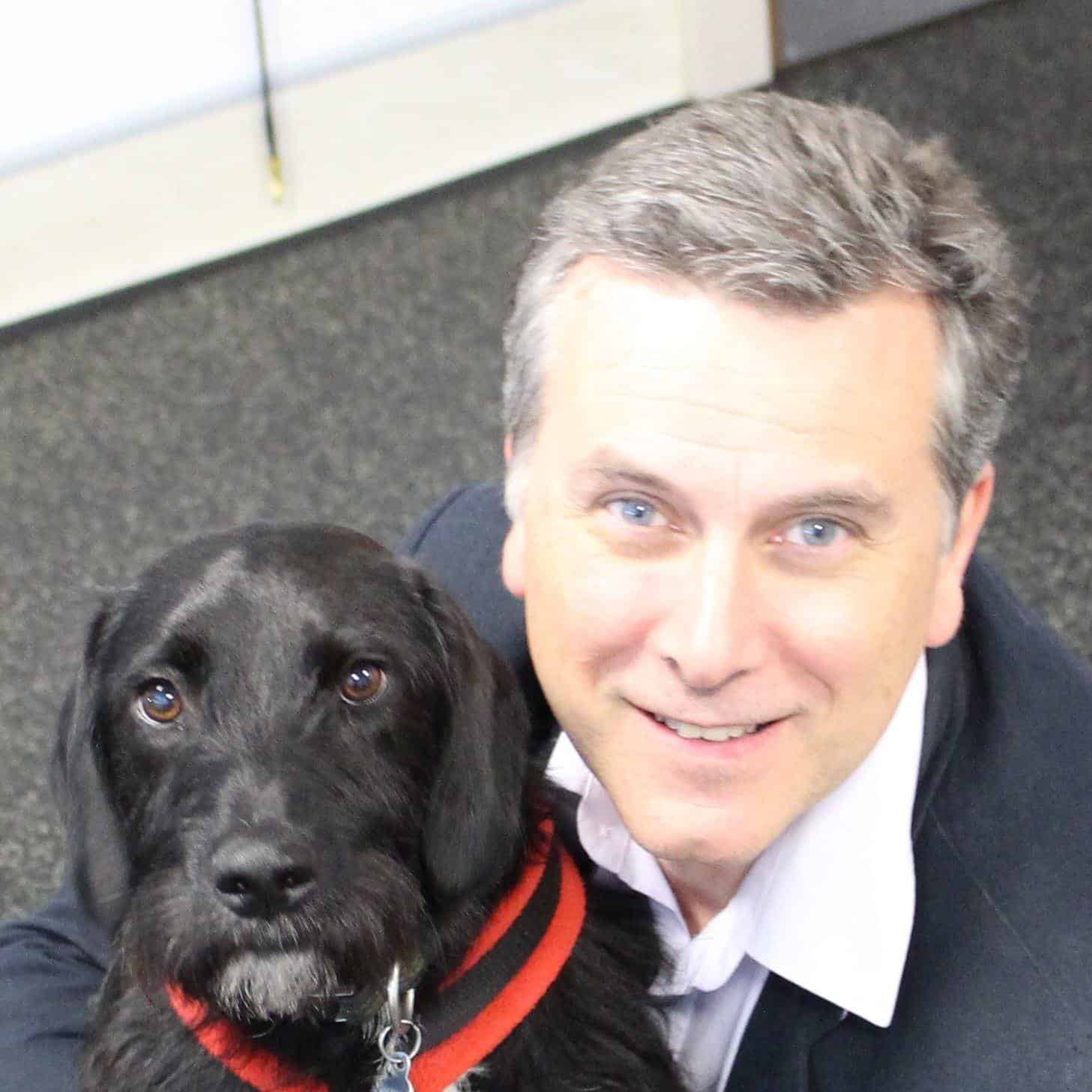
I supportAssistance Dog Foundation,
as they seek to maximise the benefits for both the human and the animal within an assistance dog team.
Prof. Daniel S. Mills
European & RCVS Recognised Specialist in Veterinary Behavioural Medicine School of Life Sciences University of Lincoln, UK
I am a veterinary behaviourist working in both clinical practice and research. Much of my work focuses on gaining deeper insight into companion animal emotions and the human animal relationship.

Ich unterstützeStiftung Assistenzhund
in ihrem Bestreben, die Vorteile im Assistenzhundteam sowohl für den Menschen als auch für das Tier zu maximieren.
Prof. Daniel S. Mills
Europäischer & RCVS registrierter Spezialist in Tiermedizin/Verhalten, School of Life Sciences, University of Lincoln, UK
Als Verhaltensforscher bin ich sowohl in der klinischen Praxis als auch in der Forschung tätig. Ein Großteil meiner Arbeit konzentriert sich darauf, tiefere Einblicke in die Emotionen von Haustieren und in die Beziehung zwischen Mensch und Tier zu gewinnen.

I supportAssistance Dog Foundation,
because it opens up opportunities to evaluate the assistance dog concept comprehensively.
Prof. Dr. Jürgen Zerth
Economics/Health Economics, Wilhelm Loehe University of Applied Science (WLH), Fürth. VP for Research and Head of the Research Institute IDC
We research innovation processes in the health and long-term care markets. We apply interdisciplinary focus on individual acceptance and usability, societal acceptability, financial viability and value creation. Assistance dogs in the personnal assistance context is of great interest to us.

Ich unterstützeStiftung Assistenzhund
und ihre Vision, Anerkennung und Unterstützung für alle Assistenzhundteams zu schaffen.
David Adams
Präsident der European Guide Dog Federation (EGDF), NGO für das Blindenführhundwesen in Europa
Wir kollaborieren mit Pfotenpiloten, um einen europäischen Lehrplan und anerkannte Zertifizierung für AssistenzhundausbilderInnen, L.E.A.D., zu schaffen. Auch beim EU-Standard "Assistenzhunde", CEN/TC 452, arbeiten wir in gemeinsamen Arbeitsgruppen. Es ist mir eine Freude, den Werdegang der Stiftung Assistenzhund zu unterstützen.

Ich unterstützeStiftung Assistenzhund,
weil hier gemeinnützig, nachhaltig und innovativ Zukunft gestaltet wird.
Gabriela Spangenberg
Geschäftsführerin Social Impact gGmbH, Berlin
Entstanden aus einem "Andersgründer"-Stipendium im Social Impact Lab, Frankfurt, verfolgen wir mit Stolz das stetige Wachstum dieses Projekts. Es geht neue Wege und etabliert Schritt für Schritt wirkungsvolle Lösungen für Assistenzhundteams. Den Aufbau sozialer Innovationen wie dieser zu fördern ist das Ziel unserer Arbeit.

Ich unterstützeStiftung Assistenzhund,
weil sie bei ihren Prozessen nicht nur Hilfe für Menschen leistet, sondern auch das Wohlergehen des Hundes im Blick hat.
Dr. Henriette Mackensen
Deutscher Tierschutzbund, Stellvertr. Leitung Akademie für Tierschutz
Assistenzhundteams verkörpern für alle sichtbar, was in enger Hund-Mensch-Partnerschaft möglich ist. Diese Hunde leisten Großartiges zur Unterstützung ihres Menschen – genau deswegen müssen ihre Rechte und Bedürfnisse besonders geschützt werden, weil sie nicht für sich selbst sprechen können.

Ich unterstützeStiftung Assistenzhund,
weil sie die nötigen Grundlagen schafft, damit es mit dem Konzept voran geht.
Peter Clever
Vizepräsident der Arbeitgebergruppe im Europäischen Wirtschafts- und Sozialausschuss. Ehem. Hauptgeschäftsführung Bundesvereinigung der Arbeitgeberverbände (BDA).
Dass Assistenzhundteam der Zutritt verweigert wird, entsteht fast immer durch mangelndes Wissen und Unsicherheit. Ein eindeutiges Kennzeichen für anerkannte Assistenzhundteams, wie es die Stiftung Assistenzhund vorbereitet, wird diese Missverständnisse verhindern.

Ich unterstützeStiftung Assistenzhund,
da ich davon überzeugt bin, dass Menschen durch die Begleitung ihres Assistenzhundes mobiler, sicherer und gesünder leben können.
Prof. Dr. Schmidtke
Patientenbeauftragte der Bundesregierung, MBA, Mitglied des Bundestages
Assistenzhunde sind wichtige Alltagshelfer bei einem großen Spektrum von Langzeitbeeinträchtigungen, darunter auch Krankheiten wie Diabetes oder verschiedene Anfallskrankheiten. Neben ihrer Assistenz sind sie natürlich auch liebenswerte Partner und schenken uns Freude und Lebensqualität.
Unser Aufsichtsrat
Als eine Initiative der Pfotenpiloten wird die Stiftung Assistenzhund auch von unserem Aufsichtsrat begleitet.

Nils Hafa
Mehr Info
Ich habe das Projekt Pfotenpiloten in meiner Zeit als Standortleiter des Social Impact Labs Frankfurt kennengelernt. Es hat mir von Anfang an sehr gut gefallen, der Social Impact ist klar erkennbar mit einer sehr motivierten und strukturierten Gründerin. Sehr gerne unterstütze ich das Projekt in der weiteren Entwicklung. Aktuell bin ich bei GreenTec Capital als Senior Company Builder verantwortlich für die Akquisition und Beratung von innovativen, wirkungsorientierten Start-ups in Sub-Sahara-Afrika.
![]()
follow me on

Susan Georgijewitsch
Mehr Info
Bereits in seiner Gründungsphase überzeugten mich Vision, Umsetzungsplanung und Leidenschaft der Gründerin von Pfotenpiloten. Und was bisher erreicht wurde, u.a. an Strukturbildung, ist beeindruckend. Gerne unterstütze ich mit meinen Erfahrungen aus langjähriger Tätigkeit im Consulting und im Fundraising für gemeinnützige Organisationen die weitere Entwicklung.
![]()
follow me on

Farid Bidardel
Mehr Info
Mit Pfotenpiloten verbindet mich vor allem die engagierte Gründerin und der klare soziale Mehrwert. Als Mitbegründer und Vorstandsvorsitzender der CodeDoor.org und CEO von TensorParc bringe ich meine Erfahrungen in die Prozessstrukturen gerne mit ein. Zuvor verwaltete und entwickelte ich für die Social Impact gGmbH – zusammen mit JPMorgan, KfW, Generali & Deutsche Bank – nationale und internationale Programme für benachteiligte Unternehmer und social Entrepreneure. Durch meine Forschungs- und Lehrtätigkeiten mit den Schwerpunkten Bildung, Innovation und Unternehmertum bringe ich zusätzlich als Design Thinking Coach einen neuen Blick auf bestehende Entwicklungsprozesse.
![]()


